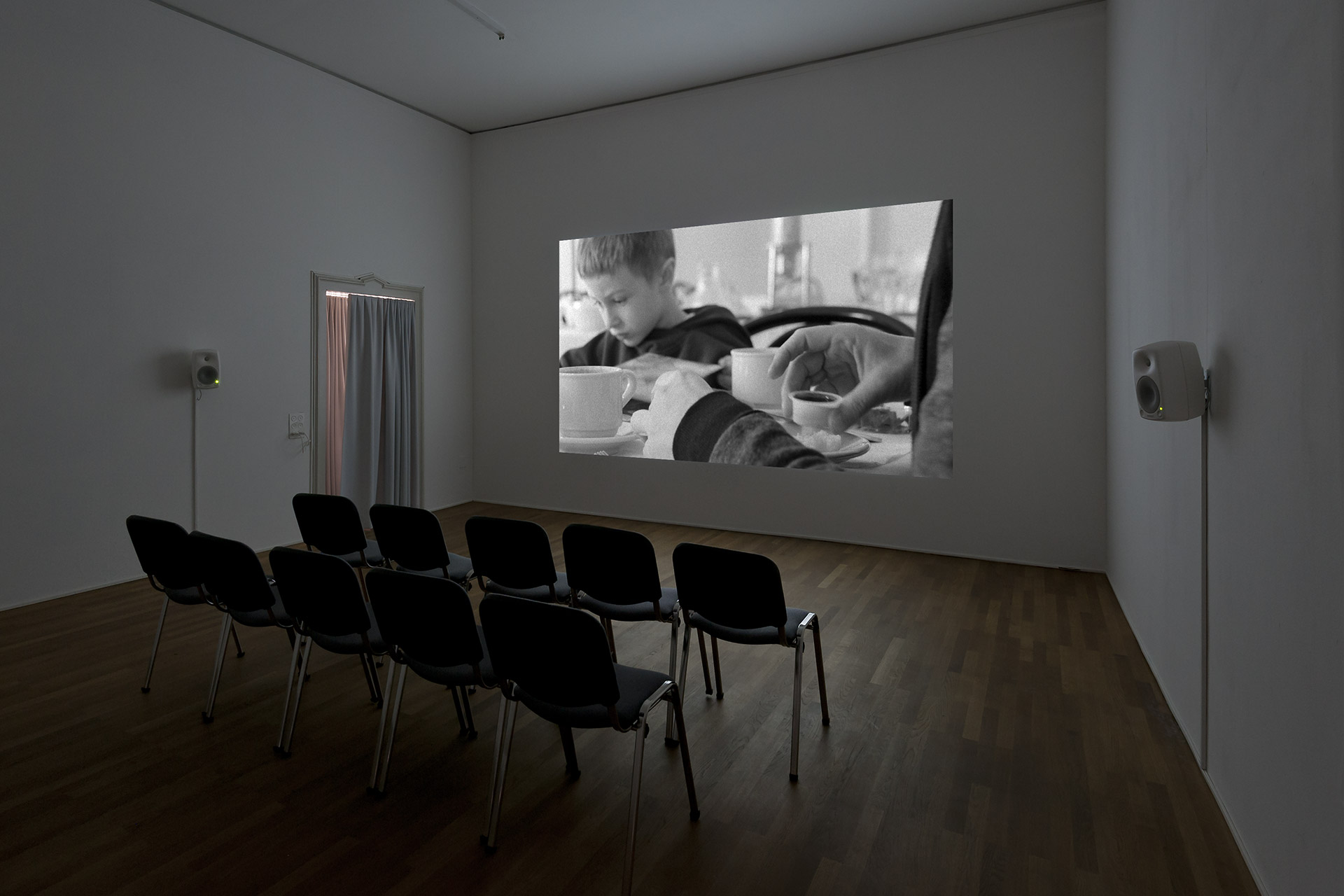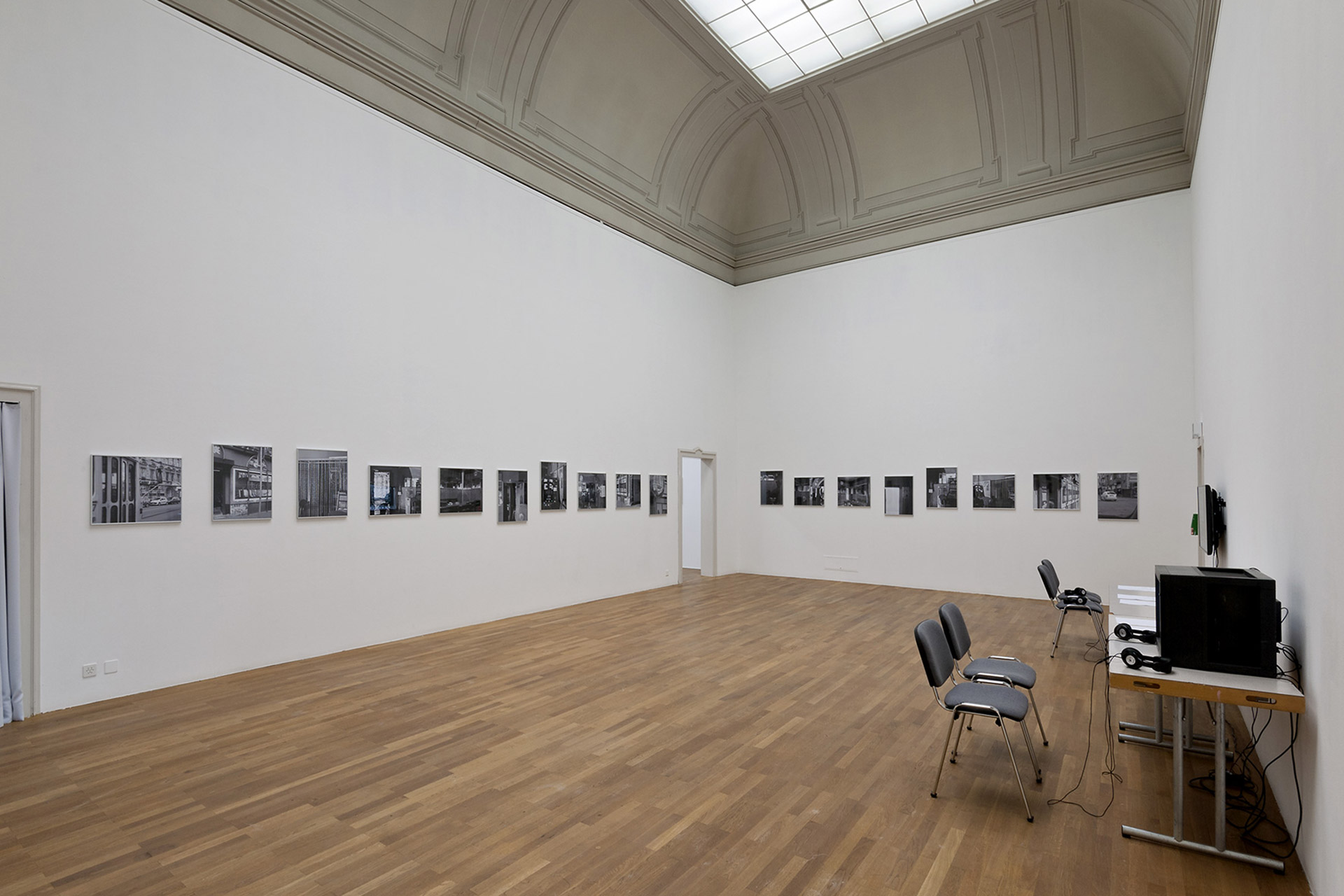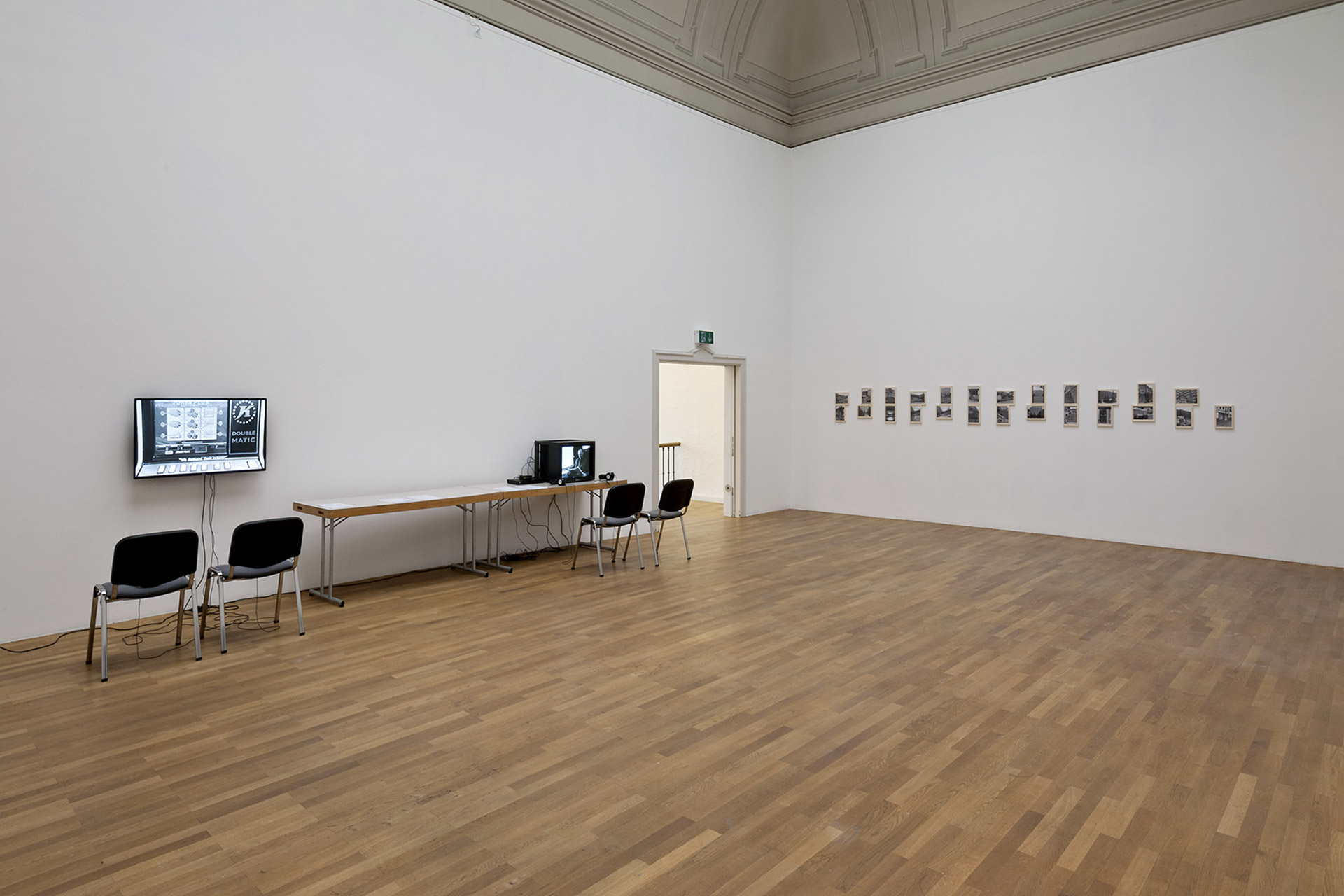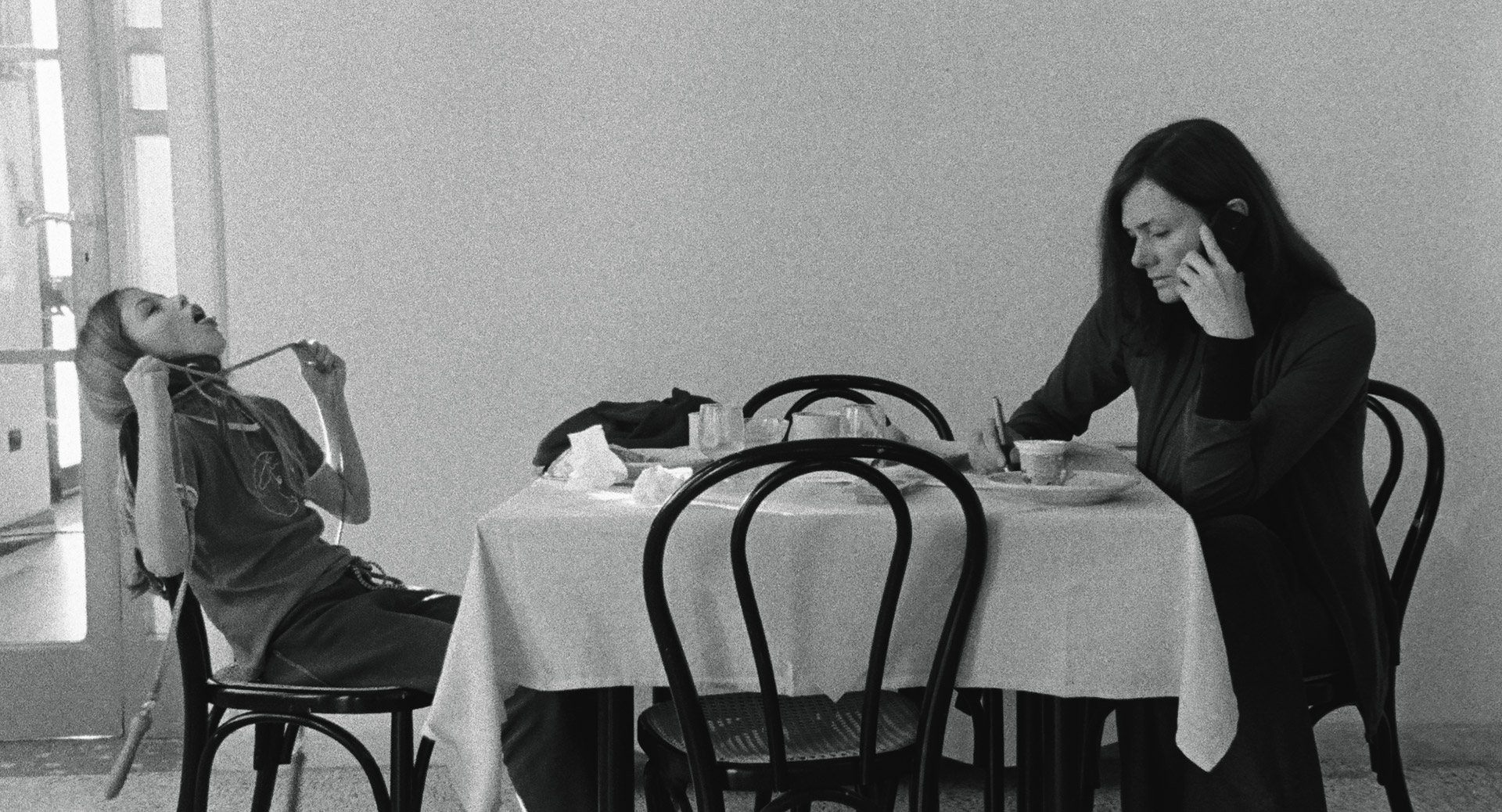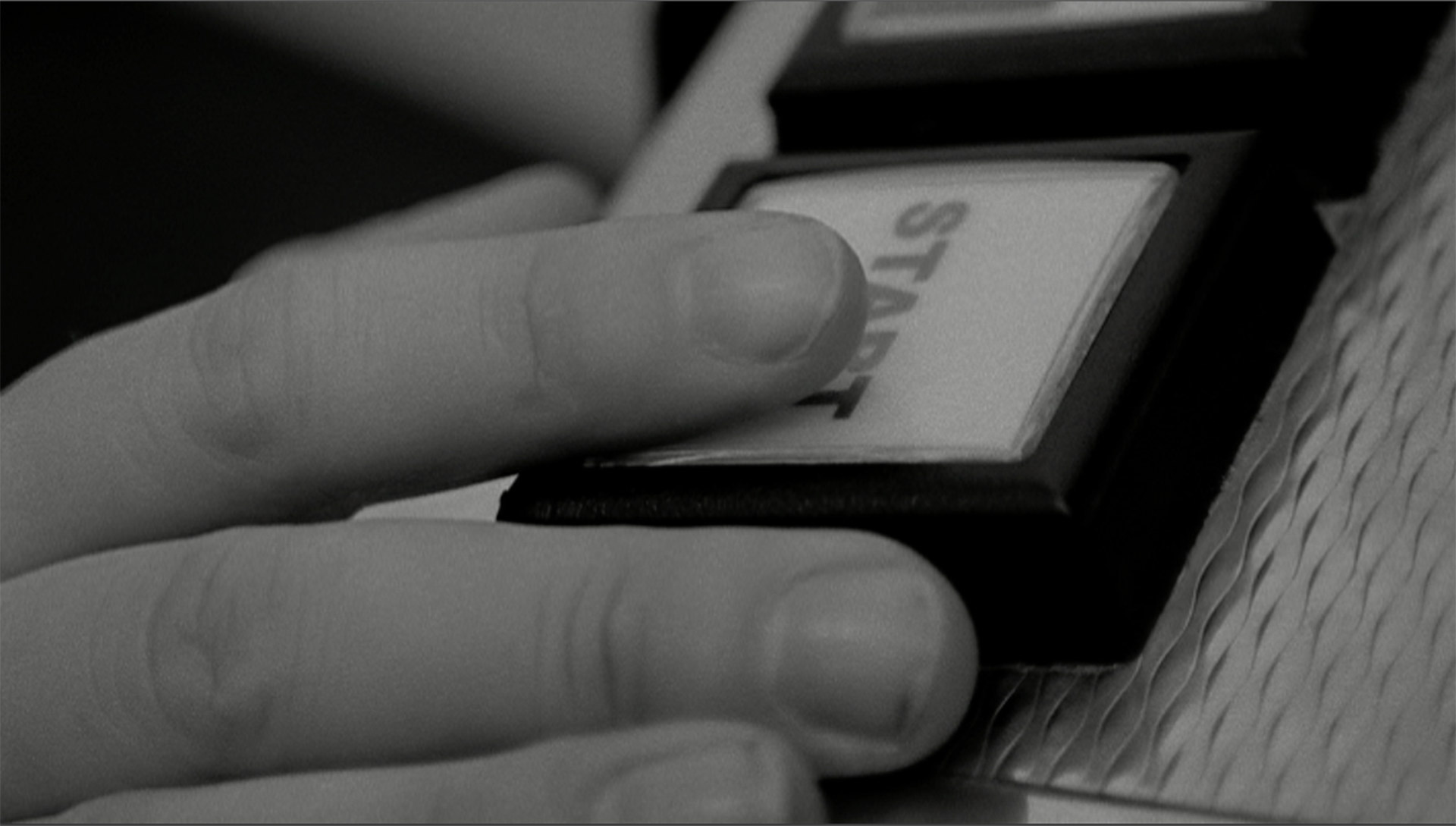Josef Dabernig
Stabat Mater
October 16 – November 27 2016
Since Josef Dabernig (b. 1956, lives and works in Vienna) began working with film in 1996, he has been interested in the relation between image and sound. For the exhibition at Kunsthalle Winterthur, Dabernig has chosen to show three films: Stabat Mater (2016), Herna (2010), and Rosa coeli (2003). The films explore the link between image and sound through the incorporation of the writings of Swiss writer and essayist Bruno Pellandini (b.1966), in the form of spoken narrative voice.
As in all of Dabernig’s works, the three films employ a reductionist and austere formal language: a small cast of actors, black & white imagery, and the use of long and mostly static camera positions. The writings of Pellandini narrated in each film tell stories of a father’s hometown funeral; two female friends who meet a showy lawyer in a pub; and an expatriate in Uruguay whose son never arrives back from a stormy sea. The melancholy of the stories is mirrored in the films’ sequences: a father’s death corresponds to the sober and shabby interior views of a Czech hotel; the dialogue of two female friends accompanies imagery of a young man gambling while his wife and child wait in a car outside; and the tragic memory of a lost son is juxtaposed with camera angles of a hotel complex during the changing seasons in Santa Cesarea Terme, Italy.
In all three films the actors appear controlled and calculated, though the stories would normally ask for the highest emotion. The narration retains a literalness due to its re-contextualization, while within the visual language of the films, a sense of displacement leads to the protagonists appearing formulaic, their behaviour purely functional and at no point calling for our empathy. They remain unaccessible, and thus, seemingly obnoxious or unlikeable.
The three films are framed by a setting in the gallery typical of Dabernig; instead of the current trend for elaborate mis-en-scènes within contemporary presentations of film and video art, Dabernig chooses foldable tables and conference chairs for visitors to view the work, and uses existing picture frames from Kunsthalle’s depot in which he displays a selection of delicate film stills taken from the three movie sets. The film Stabat Mater was co-produced by Kunsthalle Winterthur, together with the Kunstverein in Karlsruhe, where it will be shown beginning of next year.
Oliver Kielmayer
